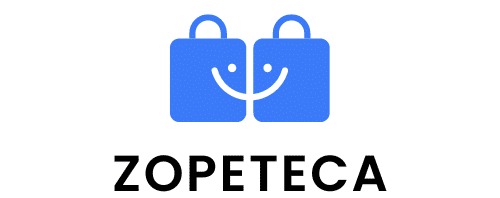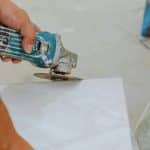Today’s technology-driven world has infiltrated nearly every aspect of our daily lives and the baby care market is no exception. One emerging innovation stirring interest and debate is the introduction of smart diapers. Are they just a fad or could they play a significant role in enhancing infant health monitoring? This article dives into the growth forecast of smart diapers and how they could potentially reshape the global baby care product industry.
The Growth and Market Forecast of Smart Diapers
Smart diapers are a recent entry into the baby products sector. These diapers are equipped with sensors that have the ability to detect and transmit information about a baby’s health through their urine. The global market for smart diapers is anticipated to experience a massive expansion.
A lire en complément : How Can Urban Permaculture Design Transform UK’s Food Systems?
According to recent scholarly reports, the smart diapers market is set to see a significant growth, thanks to the rise in technological advancements, increased acceptance of smart baby care products, and heightened awareness about infant health. The smart diapers market is predicted to cross the billion-dollar threshold by 2026.
The market segmentation for smart diapers is broad, with varying applications including hospitals, nursing homes, and households. Not only are they useful for monitoring an infant’s health, but they are also valuable for elder care, providing convenience and reassurance to caregivers.
A lire en complément : What’s the Role of Digital Libraries in Preserving UK’s Cultural Heritage?
Smart Diapers and Infant Health Monitoring
Smart diapers bring a new dimension to infant health monitoring. The application of technology in these products enables parents to track their child’s health in real-time.
These diapers are laced with sensors that can detect changes in a baby’s urine, alerting parents to potential health issues such as urinary tract infections, dehydration or kidney problems. The diapers work by sending information to a corresponding mobile application where data is analyzed and results are given in a comprehensible manner.
While the technology is still in its infancy, it has the potential to revolutionize the way we perceive infant health care, giving parents an additional tool to ensure the wellbeing of their babies.
The Role of Smart Diapers in Global Infant Health Care
The potential growth of smart diapers extends beyond the consumer market. Their incorporation into global infant health care systems could present an opportunity to monitor and address health concerns at an early stage.
In developing countries, where access to health care services may be limited, smart diapers could provide critical information about a baby’s health. By analyzing the data provided, health care professionals could intervene promptly when abnormal patterns are detected, potentially preventing more serious health complications.
Furthermore, the data collected from these smart diapers could be used for scientific research, contributing to the broader understanding of infant health and development.
Controversial Aspects of Smart Diapers
Despite the promising potential, smart diapers have also sparked controversy. Critics question the necessity of such high-tech baby products, citing concerns about the reliance on technology for basic parenting duties, privacy issues related to data sharing, and the environmental impact of disposable smart diapers.
Moreover, the cost of these diapers is significantly higher than standard diapers, which could limit their accessibility to a broader demographic. However, as the technology matures and becomes more mainstream, prices are expected to drop, making it more affordable.
Conclusion
Smart diapers are paving the way for a new age in baby care products, promising an additional level of monitoring and reassurance for parents and health care professionals. As the technology continues to develop, it will be fascinating to see how it is integrated into global health care systems and what impact it will have on infant health monitoring. Despite the reservations, the potential benefits cannot be ignored. The smart diapers segment could very well be on the cusp of a significant breakthrough in the baby care market.
The Impact of Smart Diapers on the Global Market
The global market for baby care products is vast and continually expanding. With the introduction of smart diapers, a new niche within this market has been carved. These innovative products are predicted to bring about a significant shift in the diapers market, both in terms of product type and market growth.
According to a recent market report, North America is expected to dominate the smart diapers market, followed closely by Europe and the Asia Pacific region. The robust market growth can be attributed to the increasing acceptance of smart connected baby care products, the rise in technological advancements, and the awareness of infant health.
Google scholar and Crossref Google have reported a significant rise in scholarly interest around smart diapers over the past five years. This points to the increasing recognition of their potential in various sectors such as hospitals, nursing homes, and households.
Moreover, the ability of smart diapers to provide real-time health monitoring is seen as a key driver for market growth. The convenience they offer, not just for parents but also for caregivers in nursing homes, is another factor contributing to their expanding market size. Despite the current high cost, with technological advancements and increased production, prices are expected to decline, further bolstering the diaper market’s potential.
The Future of Smart Diapers
As the smart diaper industry continues to mature, its potential uses are expected to expand. Besides infant health monitoring, smart diapers could find applications in elder care, disease prevention, and health research. For instance, the data collected from smart diapers could be used by researchers to understand the health patterns of infants and the elderly, contributing to the development of better healthcare strategies.
From a market perspective, the smart diapers segment is poised for substantial growth. The evolution of the product type, the demand for better baby care products, and the promise of real-time health monitoring are all expected to drive the market growth. The role of smart diapers in infant health care systems is also expected to expand, especially in regions where access to healthcare services is limited.
As with any revolutionary product, challenges and controversies are anticipated. The reliance on technology for basic parenting duties, privacy concerns, and the environmental impact are all valid concerns that need to be addressed. However, as the technology evolves, solutions to these concerns are expected to emerge.
Conclusion
The potential of smart diapers in enhancing infant health monitoring is immense. As we continue to navigate through this technology-driven world, innovations like smart diapers are altering the landscape of the baby care market. In the future, these products are expected to play a crucial role in global healthcare systems, providing valuable insights into infant health and potentially preventing serious health complications. Despite the challenges and controversies, the substantial benefits that smart diapers offer cannot be ignored. Indeed, the future looks promising for this smart connected product segment in the baby care market.






